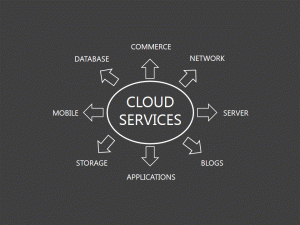About 50 percent of global 1000 companies will be using the cloud to store customer sensitive data by 2016 says Gartner. Although the path to cloud computing has been the trend for most small to midsized businesses (SMBs) and enterprises alike, most users still ask the question of whether cloud or on-premise implementation is the better choice.
Cloud Computing and your Business
Cloud computing is such a game changer – it allows the business to focus more on its core expertise, by having its application hosted (IaaS) or subscribed (SaaS) through cloud applications such as Office 365 or Salesforce.com to name a few. And because of this, there is a shift on how procurement views IT – from a capital expenditure, it moves to operational- eliminating the need for companies to buy and set-up its own licenses and servers, and just subscribe to pay as you go model.
However, no matter how promising cloud computing is, there are still a couple of issues raised by analysts. Like the question of control and security. For instance, if your SharePoint application is deployed on the cloud, who owns the administrative rights? How far can your IT Admin make its own configurations and changes before it gets blocked by Microsoft?
The same questions are asked by SharePoint users when faced with the decision of adopting SharePoint 2013 through Office 365 or setting-up their server farm, and do it in-house. Ultimately, the direction to go to the cloud or make an on-premise set-up is relative to the needs of the business.
Through Office 365, users can utilize SharePoint Online that is built over the SaaS cloud business model. SharePoint Online has many notable business benefits; first through its pay-as-you-go model there is no heavy upfront costs that are normally associated with on-premise implementation. For as low as $12.50 per user/per month, a business no matter how small can already come up with an enterprise grade SharePoint implementation.
Other than this, SharePoint Online is highly scalable and redundant. Therefore, businesses can set-up their SharePoint Online once, and have Microsoft take care of its daily operations and maintenance. At any point in time that more resources are needed, SharePoint Online can easily scale up with almost no downtime and not to mention high upgrade costs. Outages and disaster recovery are also not a problem, since Microsoft cloud services are redundant and fault tolerant.
SharePoint On Premise
As many benefits as there are in SharePoint Online, it is not for every type of business. The SaaS model of Office 365 though highly attractive to most SMBs, also has its own limitations that could be better catered by SharePoint On Premise or a Hybrid Implementation (i.e. combination of cloud and on premise).
For instance, businesses such as health or banking, which host highly sensitive customer data, have to be compliant to legal and industry standards. Admittedly, the cloud is still working to make itself more compliant; in effect, it is still a most preferred approach to do an on-premise implantation.
On premise implementation is also a more preferred approach to businesses which wanted to make sure that their data stays in their country’s soil. It should be noted that cloud computing companies such as Amazon, Microsoft, Rackspace and the likes have data centers all over the world. Once a business’ information is brought on the cloud, they have little to no control of which server location this will be placed.
Choosing the right platform
Both SharePoint Online and SharePoint On Premise have their own good and not so good features. Ultimately, its value rests on what companies need and what solution are they looking for to cater to that. Our team of experts at Portal Integrators can help your business identify the most preferred implementation to your business. Contact us to know more.

